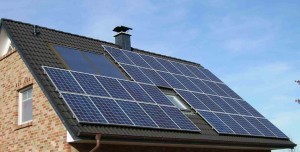Pros and Cons of Installing Solar Panels on Chicago Roofing
The increasing popularity of solar power is shown by the number of households and businesses installing solar energy systems on their houses and buildings. If you are one of those thinking about using this clean energy source, below are some of the pros and cons of installing solar panels on your Chicago roofing.
Advantages
1. Environmentally Friendly
Using solar energy does not contribute to air and noise pollution. It has no moving parts and does not emit noise. It also decreases our need for non-renewable sources of energy. While emissions are noted from the manufacture of a solar power system, they are negligible compared to those produced by conventional power sources.
2. Abundant Source of Power
Solar energy is everywhere on our planet. The earth’s surface is bombarded with solar radiation that is more than enough power to supply our entire world. It is available throughout the world and not only to countries located near the equator.
3. Sustainable
Sustainable means that we cannot over-consume the power source in our generation as to affect the needs of future generations. Solar energy is not only abundant but renewable and sustainable too.
4. Renewable Energy
Solar power is derived from the sun, which is expected to be around for billions of years. Solar energy is, therefore, a renewable source of power because its source will never run out. Non-renewable energy sources include coal and fossil fuels.
5. Reduces Electricity Cost
Installing solar panels can save you money from electric bills. Homeowners experience sharp reduction of their monthly power bills when using solar energy. Depending on the location of your home, your savings could reach up to hundreds of dollars per month.
Disadvantages
1. Expensive
Expense is a primary consideration of homeowners thinking about solar power. You have to buy upfront the solar panels and pay for their installation, which is not cheap. The higher your energy requirement, the more solar panels you will need.
2. Big Space Requirement
Power density refers to the amount of power that can be generated in a specific real estate of energy source. Low power density means the power source requires too much real estate to produce energy at reasonable price. Solar power has a higher power density than other renewable energy sources but has significantly less than gas and oil.
3. Expensive Energy Storage
Batteries present an ideal solution to the non-availability of the sun to power solar panels twenty-four hours a day. However, energy storage is relatively costly as well, which adds to your expense in using solar energy.
4. Intermittent
The source of solar energy is not available at all times. The sun cannot power the solar panels at night and provide limited energy during bad weather. There are places that have limited exposure to sunlight for several months in a year.
